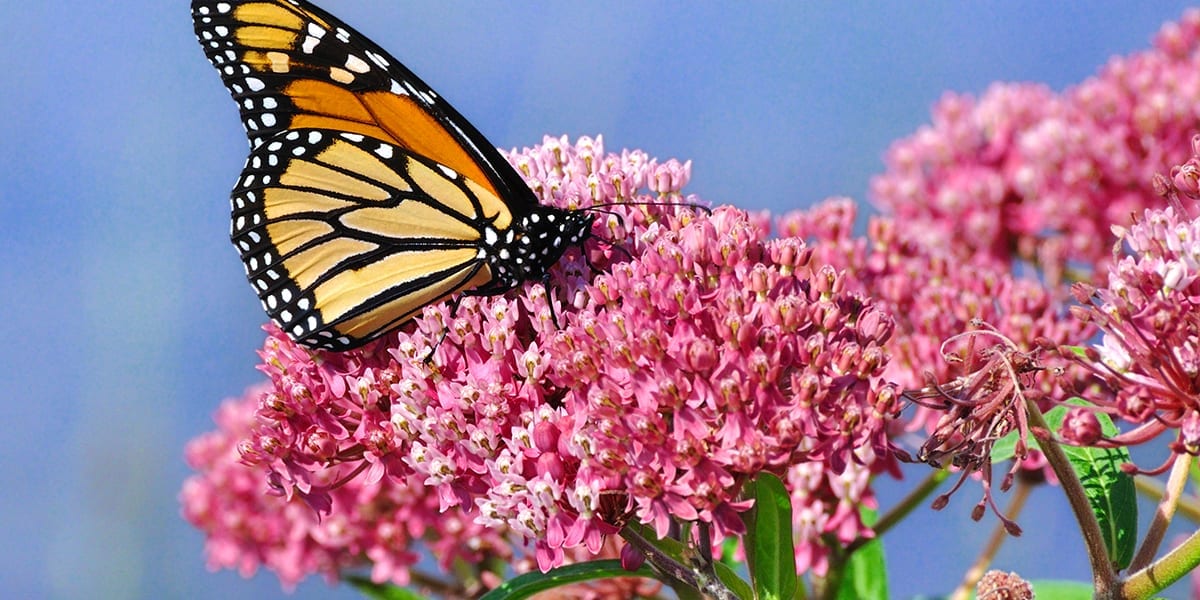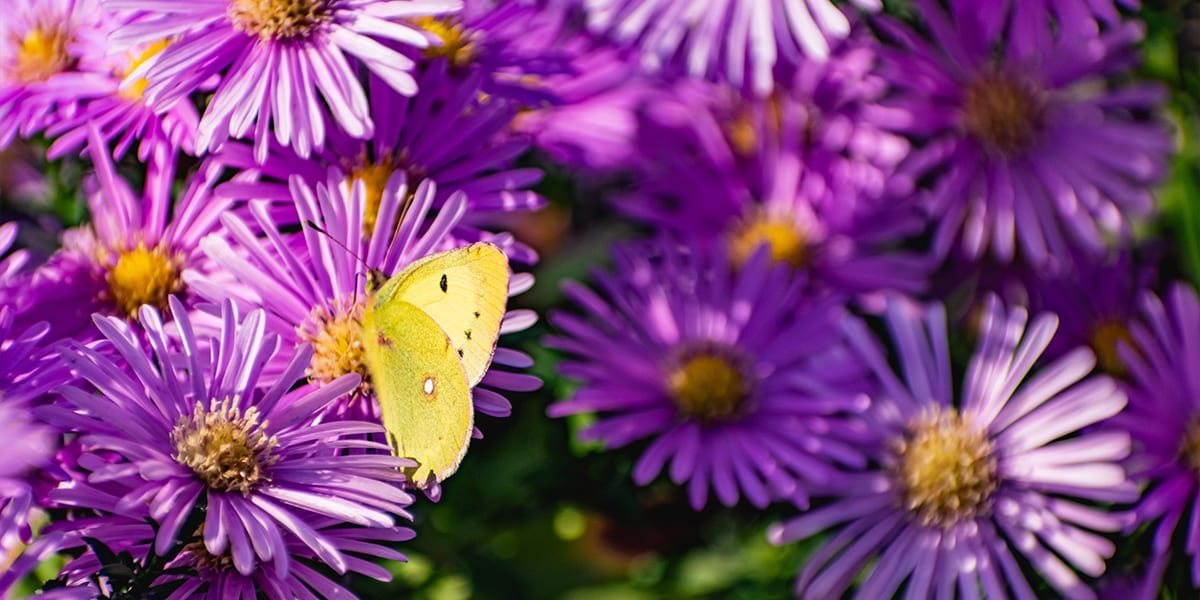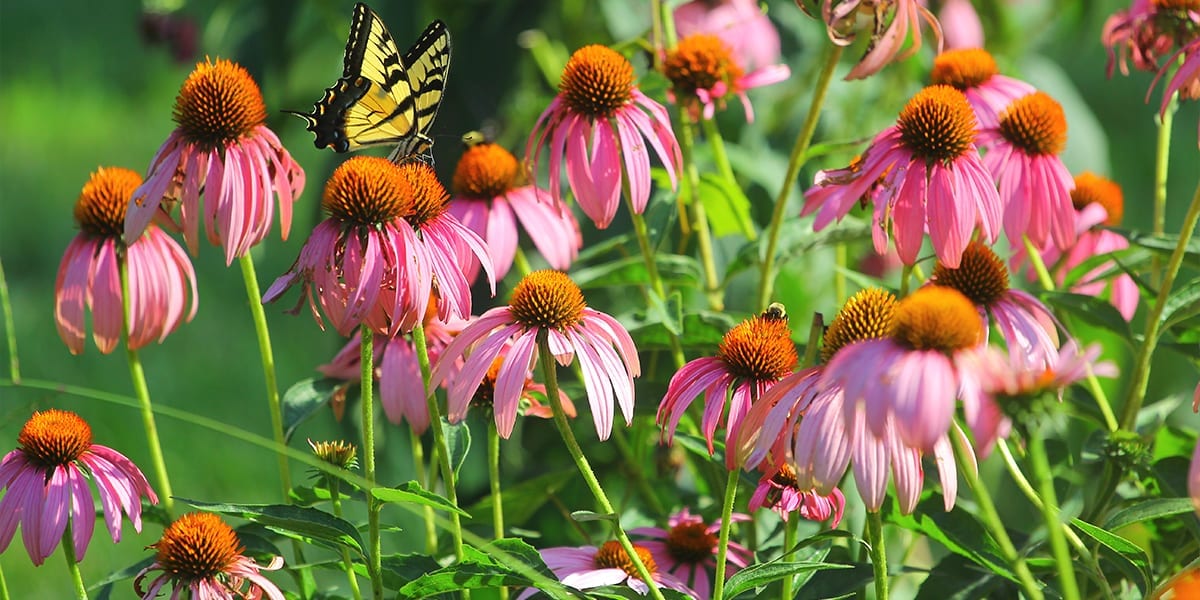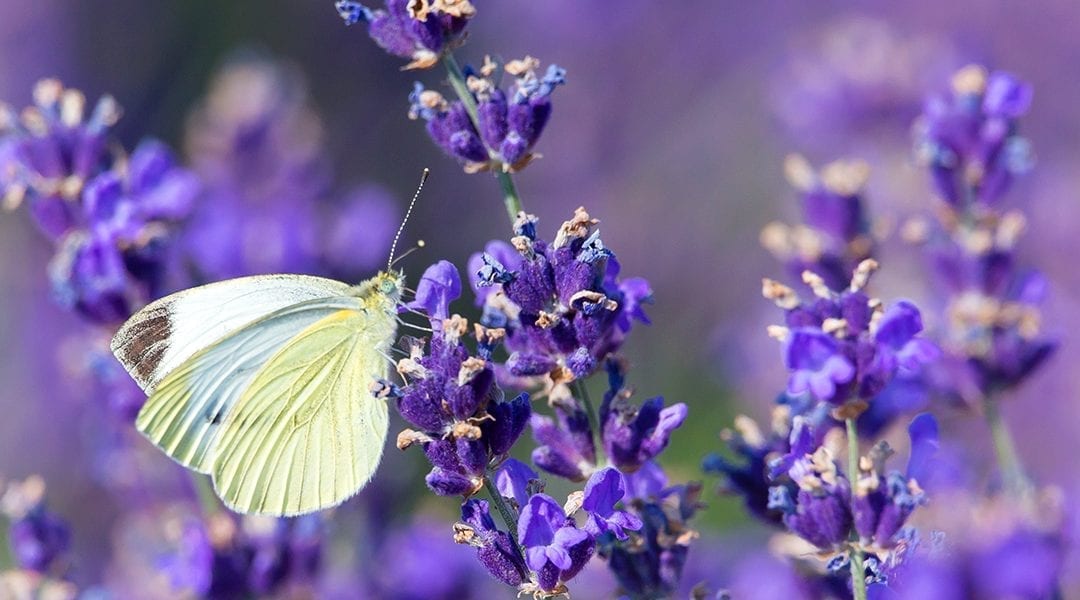Like us, butterflies love strong fragrances, a warm spot to sun themselves, and a little water to sip on. They’re particularly fond of May and June when they finally emerge from their cocoons and take flight to visit their favorite nectar-rich flowers. Many annuals and perennials attract them to our gardens, but before we dive into our options, let’s get to know these beauties a little better.
Butterfly Life-Cycles
Butterflies have been living in our region far longer than we have. As longtime residents, they usually prefer the company of old friends, the native flowering plants, who nourish them throughout their whole lives. As caterpillars, they fatten up on leaves before finding a place to spin their cocoons. Once they break out, complete with a new pair of wings, they need a continuous source of blossoms to eat while finding a partner and laying eggs on the familiar plants where they grew up.
Here are some plants that will attract Swallowtails, Painted Ladies, Sulphurs, Monarchs, and other common butterflies that live in Illinois.

Milkweed
This flowering meadow plant is the keystone of the Monarch butterfly’s diet. It’s an easy-growing perennial that requires full sun and grows a modest 3 feet in height. Its exquisite globular flowers look like miniature hydrangeas. The milkweed may attract Monarchs into your yard during their continent-wide migrations between Mexico and Canada. Monarchs will feed from the milkweed, then lay their eggs on the plant.
Dill, Parsley, Fennel
The Black Swallowtail, in particular, loves these plants that may be growing in your vegetable garden already. You can grow some for your own harvest, and let a few go to flower as a food source and host plant for this Illinois pollinator.

Asters
This jewel of woodland meadows blossoms with vivid indigo and magenta petals. These dense herbaceous perennials will form a mass of exquisite flowers that may attract some of the Sulphur butterflies that inhabit our region.
Yarrow
The large flat top of these blooming machines gives butterflies a chance to perch and sun themselves as they drink the sweet nectar. Blooming from late spring from late summer, they are in sync with the time that most adult butterflies are searching for food.
Sage and Lavender
The strong scent of these fragrant perennials may attract many pollinators. They love dry, sunny spots, grow in several varieties, and their cylindrical, long-blooming flowers offer butterflies great access to their nectar. Plus, you can harvest some sprigs of these herbs for your recipes or home decor.

Coneflower
The coneflower is another native perennial that offers abundant nectar for butterflies. This sun-loving plant can easily adapt to moist or dry conditions. It likes to grow in clusters, blooming profusely from June to October.
Willows
Willows offer excellent habitat for Viceroy caterpillars, who feed on their leaves before spinning their cocoon. As adults, they will eat from milkweed and other common flowers. By offering food for their full lifecycle, you may attract some of these wide-ranging fliers to take up residence in your yard.
Creating Other Butterfly Habitat
You can place flat stones in sunny spots of your garden to give butterflies a chance to rest and warm up enough to fly. If you really want to treat them, you can also create an area of wet sand or damp mud, where they like to drink up water and minerals. Keep in mind not to use any insecticides in your garden if you wish to keep butterflies, caterpillars, and their eggs around.
These beautiful landscape plants are just a few of the many flowering plants that can feed the wild butterflies who live in our suburbs, countryside, and with any luck—our gardens. If you wish for more in-depth guidance for selecting, planting, and growing pollinator-friendly plants, please don’t hesitate to contact one of our garden centers.
Click for more information about our winged friends.
Platt Hill Nursery is Chicagoland’s premier local garden center and nursery near you making gardening easy.


